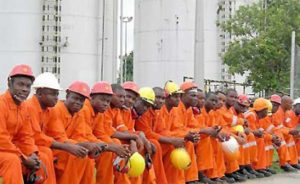27 Sep 2019 Investors’ focus on ” stranded workers and communities” needed for a ‘Just transition’
The Paris Agreement’s 2 °C objective requires that more than 80% of all proven fossil fuel reserves become stranded resources, and investments in such resources may become “stranded assets” for industrialized and developing countries.
A ‘just transition’ for workers and communities as the world’s economy responds to climate change was included as part of the 2015 Paris Agreement on climate change.
 According to the FT article as of September 27, 2019 written by Tom Nelson and Sahil Mahtani, climate policy needs to take into consideration the social dimension, as it has become evident in the protests by the gilets jaunes in France for the increase in the fuel taxes by the government led by Emmanuel Macron.
According to the FT article as of September 27, 2019 written by Tom Nelson and Sahil Mahtani, climate policy needs to take into consideration the social dimension, as it has become evident in the protests by the gilets jaunes in France for the increase in the fuel taxes by the government led by Emmanuel Macron.
Policy makers are facing the challenge to address both decarbonization 
and populism. According to the article, there was already a big transition in history with the decline of agriculture between the 1880s and the mid-20th century in western Europe and the US. A key part of governments’ responses to falling agricultural prices was to put a price floor under farm products.
According to the writers, today investors can help the process as follows:
1-They can integrate decarbonization and social considerations into their mainstream analysis.
2- They can engage with companies on how they plan to reconcile conflicting environmental and social goals.
3- They can focus on companies that, through driving positive change, will see significant structural growth in the carbon transition.
For further information, read the full article on FT on the link below and see the guide published by the Grantham Research Institute on Climate Change and the Environment:
